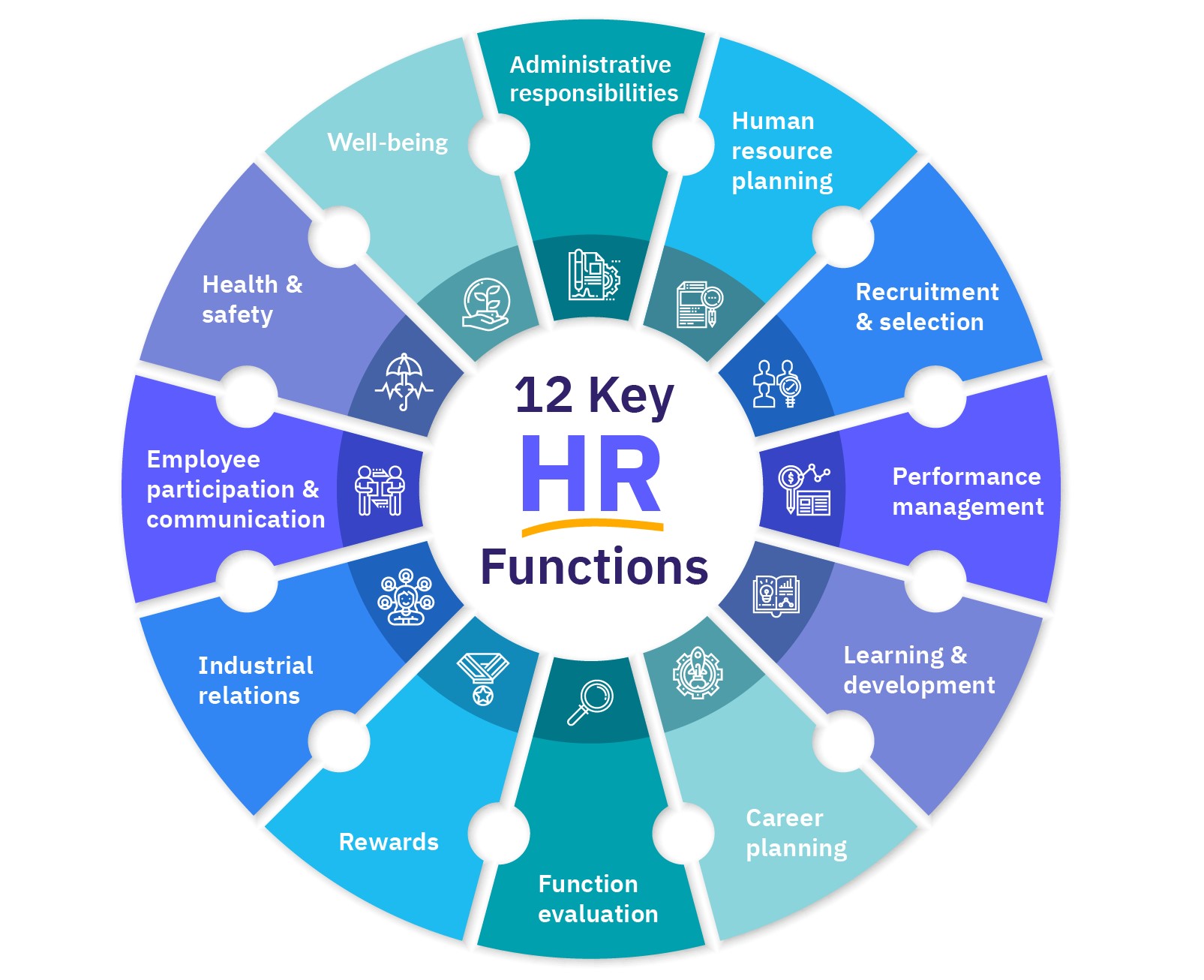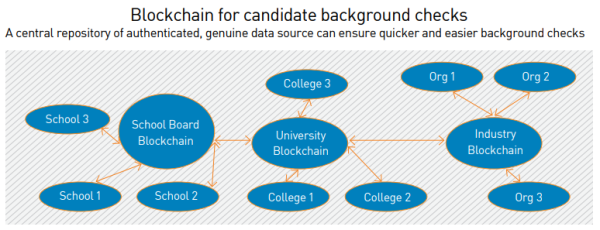SERVICES BY US
Human Resource & Blockchain
Blockchain technology can be useful in Human Resource:
- Resume Verification: One of the challenges faced by HR departments is verifying the authenticity of a candidate’s resume. This is particularly difficult when dealing with a high volume of job applications. Blockchain technology can provide a solution to this problem by creating a secure and tamper-proof record of a candidate’s education, work experience, and other credentials. This information can be easily verified by HR professionals and can help to reduce the time and effort required for background checks.

- Credentials and Certifications: Many jobs require employees to hold certain certifications or qualifications. Blockchain technology can provide a secure and transparent way of storing and verifying these credentials. By using blockchain-based credentials, employers can be sure that their employees have the necessary skills and qualifications for the job. This can be particularly useful in industries such as healthcare, where certification requirements are critical.
- Payroll and Benefits: The payroll and benefits process is an essential part of HR, but it can also be prone to errors and fraud. By using blockchain technology, HR departments can create a secure and transparent system for recording and tracking employee payments and benefits. This can help to reduce errors and ensure that employees receive the correct amount of compensation. Additionally, the use of blockchain-based payroll systems can reduce the risk of fraud and increase transparency.
- Performance Management: Performance evaluations are an important part of HR, but they can be subject to bias and inconsistency. Blockchain technology can provide a transparent and secure system for recording and tracking employee performance data. This can help to ensure that performance evaluations are fair and objective. Additionally, blockchain-based performance management systems can help to identify areas where employees may need additional training or support.
- Recruitment and Talent Management: Recruiting and managing top talent is a critical function of HR. Blockchain technology can help to simplify the recruitment process by providing a secure and transparent system for tracking job postings, applications, and candidate evaluations. This can help organizations to identify and recruit top talent more efficiently. Additionally, blockchain-based talent management systems can help to ensure that employees are matched with roles that are best suited to their skills and qualifications.
Overall, blockchain technology can provide numerous benefits to HR departments, including increased efficiency, transparency, and security. By leveraging blockchain-based systems, HR professionals can improve the accuracy and reliability of their processes, resulting in better outcomes for both employees and employers.

Few blockchain case studies for Human Resource:
- TrustLogics: TrustLogics is a blockchain-based platform that aims to streamline the hiring process by providing a secure and transparent way to verify the credentials of job candidates. The platform uses a blockchain-based system to create a tamper-proof record of a candidate’s education, work experience, and other qualifications. This information can be easily verified by potential employers, reducing the time and effort required for background checks. TrustLogics also provides tools for managing job postings, applications, and candidate evaluations.
- Bitwage: Bitwage is a blockchain-based payroll platform that enables employers to pay their employees in Bitcoin. By using a blockchain-based system, Bitwage provides a secure and transparent way to track employee payments and benefits. The platform also allows employees to choose how they receive their payments, such as in Bitcoin or traditional currency. Bitwage has been particularly popular among freelancers and remote workers, who often face challenges when it comes to receiving payments from overseas clients.
- Chronobank: Chronobank is a blockchain-based platform that aims to disrupt the traditional recruitment industry by providing a decentralized job marketplace. The platform uses a blockchain-based system to create a secure and transparent way for job seekers and employers to connect. Chronobank also provides tools for managing job postings, applications, and candidate evaluations. Additionally, the platform offers a cryptocurrency-based payment system that allows employers to pay their employees in a variety of digital currencies.
- UNICEF Innovation Fund: The UNICEF Innovation Fund is a program that invests in blockchain-based startups that have the potential to create positive social impact. One of the startups that the fund has invested in is StaTwig, a blockchain-based platform that aims to reduce food waste by creating a secure and transparent supply chain. The platform uses a blockchain-based system to track the movement of food products from farm to table, ensuring that food products are delivered to their destination on time and in good condition. StaTwig’s technology has the potential to create new opportunities for farmers, distributors, and retailers, while also reducing food waste and improving food safety.
Overall, these case studies illustrate how blockchain technology can be used in a variety of HR applications, including resume verification, payroll, recruitment, and supply chain management. As blockchain technology continues to evolve, it is likely that we will see even more innovative use cases emerge in the HR space.
Services categories
About us

Our goal is to help our clients achieve their online goals by providing them with customized, effective, and results-driven solutions that drive growth, increase visibility, and strengthen their online presence.
Contact info
Address office
USA, INDIA, VIETNAM
Phone